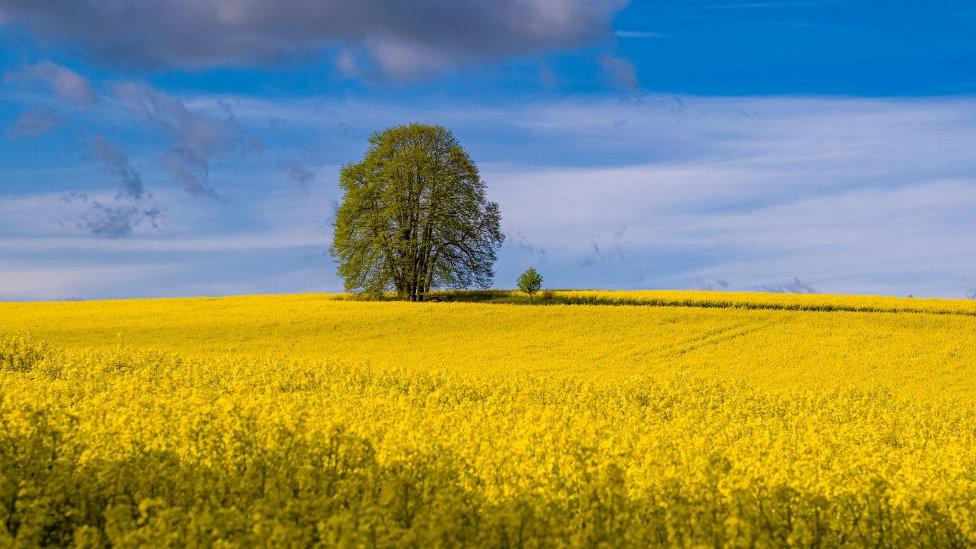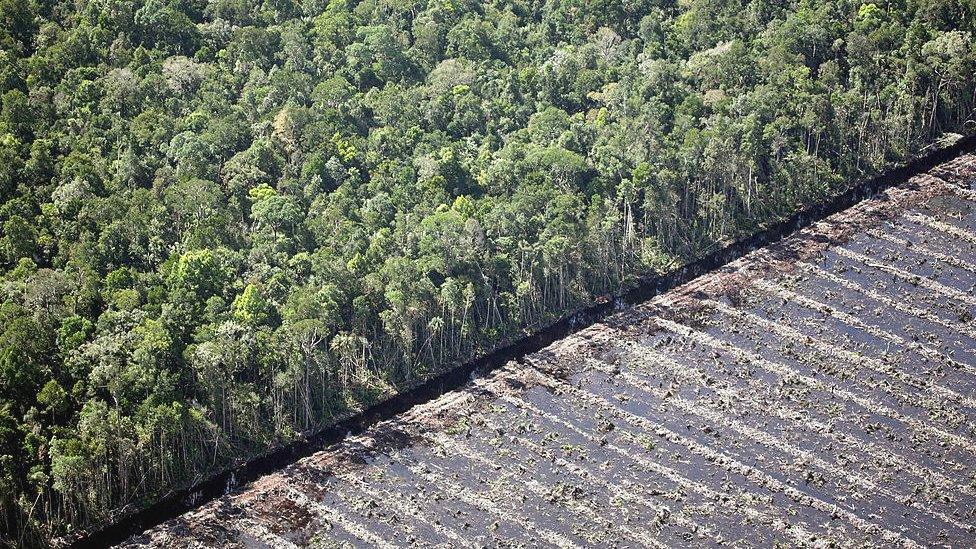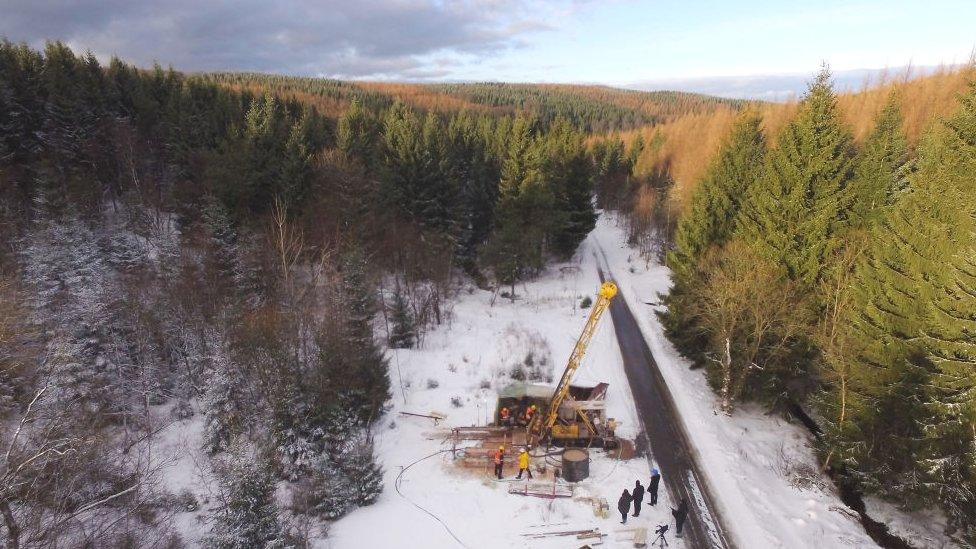'Quick fixes' to the climate crisis risk harming nature
- Published

Climate change and nature loss are interlinked and must be tackled together.
That's the finding of a key report by 50 leading scientists searching for combined solutions to the climate and biodiversity crises.
"Quick fixes" for climate change risk harming nature, say the experts.
Potential "climate and biodiversity fails" include misguided tree planting and large-scale bioenergy crops.
The report is the first collaboration between two groups of influential scientists advising international governments on tackling climate change and extinction.
Prof Camille Parmesan of Plymouth University, a co-author of the report, said smarter tree planting strategies are needed.
For example, plantations of a single species of non-native tree "are a disaster", she said, as these forests will be vulnerable to extreme weather or outbreaks of plant pests.

The report calls for restoration of carbon-rich ecosystems such as forests and peatlands
"Every tree is the same species," she said. "That fungus or that moth or that beetle just goes boom, boom, boom from one tree to another and you lose the whole forest within one season, one drought, one heatwave."
While some timber plantations are needed to supply wood for building we must include native trees in the landscape, said Prof Pete Smith of the University of Aberdeen, who also contributed to the report.
He warned of the dangers of "an epic fail for the climate and for biodiversity" such as planting trees for forestry on peatlands, which happened in the 1970s and 1980s in the UK.
Peatlands suck carbon dioxide out of the air when in a healthy condition, but 80% of the UK's peatlands are still in a damaged state, meaning they contribute to carbon emissions.
The report was compiled by scientists from the influential Intergovernmental Panel on Climate Change (IPCC) and the Intergovernmental Science-Policy Platform on Biodiversity and Ecosystem Services (Ipbes).

The report urges caution over surges of mining activity sparked by renewable energies
It found that previous policies have largely tackled biodiversity loss and climate change independently of each other rather than taking a holistic approach.
The authors highlighted areas where efforts to tackle climate change could be harmful to nature, including:
Planting bioenergy crops in monoculture over a very large share of land
Planting trees in ecosystems that have not historically been forested or reforestation with a single tree species, particularly exotic trees
Renewable energy technology, such as electric car batteries, that causes a surge in mining activity
Building dams and sea walls that pose a barrier to wildlife.
Commenting on the report, Dr Will Pearse of Imperial College London's Grantham Institute - Climate Change and the Environment, said only by treating climate, biodiversity, and human society as coupled systems can we address "the current catastrophes".
He said "simple 'quick fixes'", such as tree planting or technological innovations, are shown to be ineffective (and sometimes actively harmful) when implemented without a holistic approach.
"Taking examples from the report, large-scale tree-planting can be harmful to biodiversity or food production, while reliance on rare-earth metals in technological solutions need safe disposal at the end of their lifecycle. "
The report has been released in the run up to two key global summits later this year.
Meetings in China and the UK will set the world's course for tackling nature loss and climate change in subsequent decades.
Follow Helen on Twitter., external